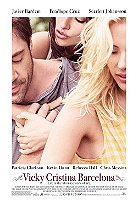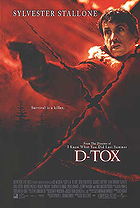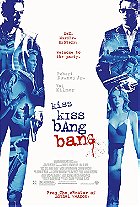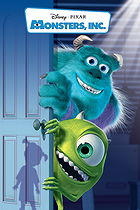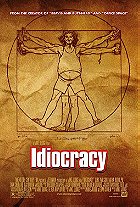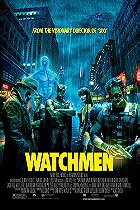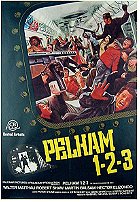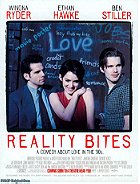Duplicity - this incredibly witty, intelligent comical crime caper concerning two professional spies with pronounced mutual trust issues - is the second directorial outing of acclaimed screenwriter Tony Gilroy (the man who also scripted the Jason Bourne films). Merging the cold corporate intrigue of Michael Clayton (the writer's Oscar-nominated debut as a director) with the suave, globetrotting antics of the Ocean's trilogy, this effervescent, meticulously plotted heist thriller is dazzling entertainment for a mature audience. The title of Duplicity (meaning deceitfulness) is extremely appropriate for such a twisty motion picture. Rest assured that with Gilroy serving as both writer and director, plot twists are frequent and (similar to Michael Clayton) concessions are rare for those who refuse to pay close attention. Luckily, Gilroy's film is an ultra-slick cinematic creation bursting with intrigue and visual elegance, not to mention it also features an outstanding cast...we're hooked from the very beginning.
The grim depredations of the corporate world may lie at the centre of Gilroy's film once again, but he manages to have loads of fun with them this time. Gilroy establishes the comical tone brilliantly with a slap-happy opening credits sequence featuring two titans of industry (Wilkinson and Giamatti) battling one another (in exaggerated slow motion) on an airport tarmac before their respective private jets as their aghast entourages observe the situation.
The less you know about the plot, the more enjoyable your viewing experience. In a nutshell: the story follows two lovers - CIA agent Claire Stenwick (Roberts) and MI6 agent Ray Koval - who become caught up in a feud between two multinational pharmaceutical companies which threatens to tip over into outright war. With one cosmetics company on the verge of announcing a lucrative, earth-shattering new product that will give them an edge in this battle, Claire and Ray spot an opportunity to strike it rich. They quit their jobs and plan to infiltrate the two organisations with the intention of obtaining the special formula for this new product.
Naturally, not everything goes to plan (it would be less interesting if everything ran perfectly), which amplifies the suspense tenfold in the lead-up to the climax. Viewers will be constantly kept on edge of their seats as the central relationship wavers, and alliances change (as do plans). Who is playing who?
Throughout Duplicity, nothing is as it seems. Characters play each other and plot twists unspool at an alarming rate. All this game playing provides Gilroy with the chance to refashion the debonair, sharp banter of 1930s romantic comedies; updating it to suit a darker, harder edged contemporary context. Accomplishing this tricky high-wire act is nothing short of incredible. Gilroy's dialogue is sizzling and witty. The timeline is very jumpy - leaping from "Five Years Later" to "Ten Days Ago" - and it takes the best part of an hour for all the puzzle pieces to very slowly begin assembling themselves. Gilroy also infuses the drama with an impressive array of surveillance techniques that the two companies utilise in order to pry into the other's business. Whether these methods are true or not remains a mystery, but they're wholly believable in context (as is the unreserved corporate avarice). Interestingly, unless you're very savvy with the film's premise, it may take a while to grasp aspects of the plot. For instance, it isn't made blatantly obvious until the heist occurs that the competing corporations are actually cosmetics companies who employ professional spies in order to get ahead of their competition!
Gilroy directs with elegance; drip-feeding plot details to his audience until the big picture is finally revealed. When he does reveal the product the entire scam concerns, it's frankly absurd. However, Gilroy probably understood that anything would seem silly after all the effort expended, thus he chose a MacGuffin so ludicrous that it's almost a sly wink to an audience.
Duplicity is a deceptively lightweight thriller that will hardly appeal to the masses. While trailers advertised the film as perhaps another Italian Job or Ocean's Eleven, the product is in fact far more sophisticated and slow-paced. No action, no car chases, no shootouts, no explosions...just a well-written story with great actors. Gilroy eschews spy action in favour of verbal gunfire, with colossal chunks of the film devoted to the fine art of banter. Those with a short attention span are advised to look elsewhere. Those willing to indulge in ultra-slick, mature, smart entertainment have come to the right place.
Duplicity isn't necessarily faultless, mind you. There are slight hindrances in Gilroy's screenplay that keep it out of the same league as, say, his own Oscar-nominated Michael Clayton. The major problem is in regards to the sheer ingenuity of the screenplay. Gilroy concentrates on the superb plot twists to such an extent that the complexities of the story prevent it from being genuinely involving.
The two main story elements crammed into the 125-minute runtime are the caper itself, and a romance story between the two leads. Duplicity unfortunately focuses too much on the latter - becoming bogged down during the saggy, plodding middle section which flashes back a bit too frequently to plug into the relationship between Ray & Claire. The protagonists' romance truly needed to be adequately developed for sure, but this overkill hampers the far more interesting main plot. Thankfully, as soon as the film shifts its focus to the caper during the final act, things hit top gear. Gilroy manages to ratchet up the tension and intrigue extremely well here. This tension is skilfully maintained; expertly wringing maximum suspense out of mundane details (a nail-biting hunt for a photocopier, for instance). It's relieving that the sluggish middle act eventually gives way to a rewarding payoff.
Tony Gilroy's films are always ultra-slick, and Duplicity is no different. Robert Elswit's stylish photography as well as James Newton Howard's vibrant, nicely spiced musical score enhance the tactile pleasure of this picture. Craftsmanship is of the highest level. From Kevin Thompson's lavish production design that complements the various locations to Albert Wolsky's smooth costume design, Duplicity is - in every aspect - a film created with complete assurance. Best of all, Gilroy had the flick shot, edited and scored like a sexy '60s caper picture - conga drums & horns, spy jargon and tense moments when a single misplaced step could terminate the entire operation. The fast-paced interaction between the actors, and the usage of split-screens in transitions give Duplicity a lively, hip retro feel that also greatly adds to one's overall enjoyment of the film (once you get past the initial barriers, that is).
At the end of the day, Duplicity - with its knotted narrative and sassy attitude - is more or less a good excuse for Clive Owen and Julia Roberts to engage in some verbal tango for two hours. How you feel about the movie will greatly depend on how you feel about the actors. Reteamed after working together in 2004's Closer, Roberts and Owen generate terrific chemistry as they endearingly steer through their respective characters' insecurities and foibles. The title of Duplicity is particularly fitting on account of the nature of their interaction, as Claire is continuously deceiving Ray and trying to ruin his undercover operations.
Clive Owen, fresh from the similarly globe-trotting The International, serves up yet another taste of how the actor might have played James Bond. Owen's character of Ray is probably the closest he's played to his own real-life persona as he's less angst-ridden than his usual roles. Julia Roberts is back playing the type of character that highlights her strengths as an actress. Think Ocean's Eleven and Twelve.
Tom Wilkinson and Paul Giamatti are perfect casting decisions. Both the actors are delicious as competing, hate-fuelled kings of industry with cutthroat mentalities and egos that know no bounds. Giamatti is particularly excellent; demonstrating the sordid audacity that comes with feeling impervious (most evident in a rousing speech presented to his company's shareholders). Wilkinson is the quieter, almost effeminate head of the opposition. His performance is a standout. The actor was nominated for an Oscar for 2007's Michael Clayton, and he works his magic here once again (despite his role being fairly small).
While Roberts and Owen are apart, they have equally terrific scenes with a wonderful array of supporting players. Roles are filled by strong character actors such as Dennis O'Hare and Tom McCarthy, both of whom played small parts in Michael Clayton. In addition to these actors, Carrie Preston plays a woman from the secretarial pool tricked into helping Ray.
Cramming in enough upscale locations, narrative switchbacks and romantic intrigue to keep an audience fairly rapt, Tony Gilroy's Duplicity is an enjoyable, droll, smart Hollywood escapade. It's hard to believe this is only the writer/director's second directorial undertaking. Gilroy may have taken his time honing his voice as a filmmaker, yet at this stage he appears to have the art down to a science. This heist thriller may not be an award-winner at year's end, but for adults seeking a movie that treats them with genuine respect, there are few films that better fit the bill. Neither a generic spy flick nor a conventional romantic comedy, Duplicity is a satisfying unification of the two genres that's very enjoyable, sophisticated and witty. It may be a frustrating motion picture, but it does - with its conclusion of sheer marvel - ultimately reward you for battling through the saggy middle of the film.
7.3/10
 Login
Login
 Home
Home 183 Lists
183 Lists 1670 Reviews
1670 Reviews Collections
Collections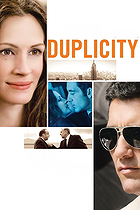
 0 comments,
0 comments, 